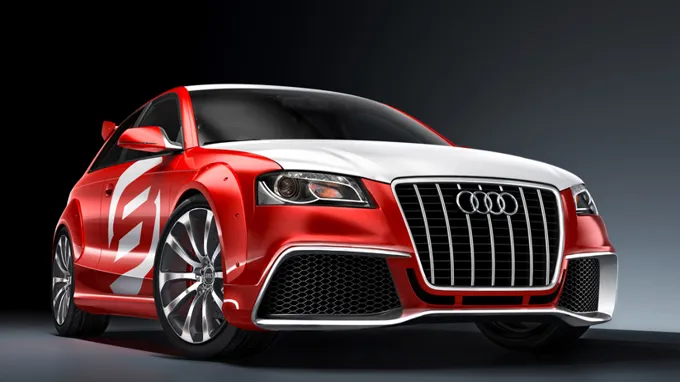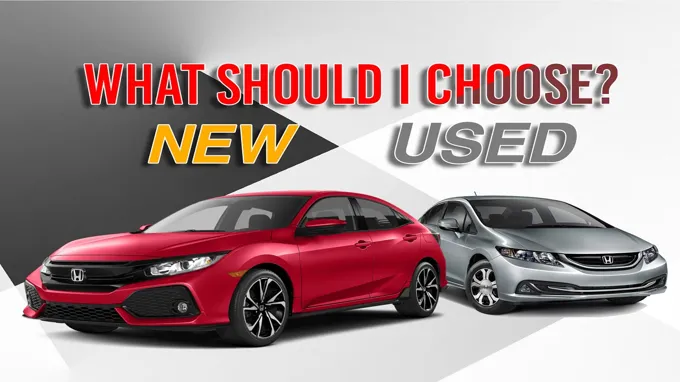Have you ever wondered what distinguishes a “new car” from a used one? When you’re in the market for a vehicle, it’s essential to know what is considered a new car, so you don’t accidentally buy a used one. In this blog post, we’ll explore what makes a car brand new, as well as some factors to consider when purchasing a new car. Whether you’re a first-time buyer or just looking for a new set of wheels, this guide will give you the information you need to make an informed decision.
So buckle up and let’s hit the road!
Definition of a New Car
When it comes to buying a car, it’s important to know what is considered a new car. A new car is a vehicle that has never been previously owned or registered, and has not been driven for more than a few miles for quality assurance purposes. Essentially, a new car is a vehicle that has not been used as a daily driver or undergone normal wear and tear.
This means that it comes straight from the manufacturer with all of its original parts and features, and is typically covered under a warranty. It’s important to note that while a car may be considered new, it may have been sitting on a dealership lot for a few months or even up to a year before it was purchased. In this case, the car may still be considered new, as it has never been registered to an owner.
Manufacturing and Delivery
When we talk about the definition of a new car, we are essentially describing the process of manufacturing and delivering a vehicle from the ground up. This involves designing the car, selecting and sourcing the materials, assembling the components, and testing the final product. It’s a complex process that requires the coordination and collaboration of various teams, from engineers and designers to production staff and supply chain managers.
The main objective is to create a high-quality, reliable car that meets the needs and expectations of consumers. This involves a range of considerations, including safety, fuel efficiency, comfort, performance, and aesthetics. When done well, the result is a car that not only meets the needs of drivers, but also helps shape the future of the automotive industry.
So whether you’re buying a new car or simply interested in how they’re made, understanding the definition of a new car is essential to appreciating the art and science of these amazing machines.

Age and Mileage Restrictions
As per car rental policies, a new car refers to a vehicle that is less than 12 months old. Age and mileage restrictions may apply when renting a new car. These restrictions can vary based on the rental company, location, and the specific car model.
Generally, drivers must be at least 25 years old to rent a new car, but some companies may allow drivers as young as 21 to rent with an additional fee. A valid driver’s license and credit card are also required to rent a new car. Mileage restrictions may include limits on how much you can drive the car per day or per rental period, with additional fees for exceeding the limit.
However, if you are looking for a rental car with maximum reliability and up-to-date features, a new car is a great option to consider.
Benefits of Buying a New Car
New cars are vehicles that have never been used or owned before and are usually sold by dealerships. There are several benefits of buying a new car. Firstly, a new car comes with a manufacturer’s warranty, which means that any mechanical problems that may arise are covered for a certain period of time.
Secondly, new cars generally require less maintenance compared to used cars because they haven’t been driven as much or exposed to wear and tear. Additionally, new cars are equipped with the latest technology and safety features, providing drivers with a better driving experience. A new car also offers greater customization options, from selecting the exterior paint color to choosing the interior upholstery.
Lastly, a new car often has better resale value compared to a used car. In conclusion, buying a new car comes with numerous advantages such as peace of mind, lower maintenance costs, and access to the latest technology and features.
Warranty Coverage
When it comes to purchasing a new car, one of the biggest benefits is the warranty coverage that comes with it. A new car warranty can give you peace of mind, knowing that any unexpected repairs or maintenance will be covered by the manufacturer. This means you won’t have to worry about shelling out extra money for repairs during the first few years of ownership.
Additionally, some warranties may include perks like roadside assistance or free maintenance visits. Overall, buying a new car with a warranty can save you money in the long run and provide added convenience and security. So, if you’re in the market for a new car, don’t overlook the benefits of a solid warranty.
Latest Technology and Features
Buying a new car can be a pricey investment, but the benefits are numerous. The latest technology and features can offer a safer, more comfortable, and more enjoyable driving experience. For example, the newest models often come equipped with advanced safety features like collision warnings, lane departure alerts, and automatic brakes that can help prevent accidents and reduce the risk of injury.
Additionally, cutting-edge connectivity options allow drivers to integrate their smartphones and access top-quality entertainment, navigation, and communication tools. Finally, buying a new car guarantees that you’re getting the latest and greatest in fuel efficiency, which can save you money on gas and help reduce your carbon footprint. When you weigh all of these benefits that come with investing in a new car, it’s clear that it can be a smart long-term decision.
Customization Options
When it comes to purchasing a new car, one of the biggest advantages is the ability to customize it to your exact preferences. From the exterior color, to the interior features, and even down to the details of the sound system and navigation, buying a new car gives you the freedom to create a vehicle that suits your lifestyle and personality. You can choose to add advanced safety features for peace of mind, or opt for upgraded performance features that give you that extra boost on the road.
With a new car, you have the opportunity to customize to your heart’s desire, ensuring that your vehicle fits your needs and preferences perfectly. In addition, new cars often come with the latest technology and features, making your driving experience more enjoyable and convenient. Overall, the ability to customize and own a brand new car that is tailored to your specific needs and style is a major benefit that gives you a sense of pride and satisfaction every time you get behind the wheel.
Factors to Consider When Buying a New Car
When it comes to buying a new car, several factors need to be considered before making a final decision. Firstly, it’s essential to determine what is considered a new car. Typically, a new car is a vehicle that has never been registered and has a zero mileage reading on the odometer.
Other factors to consider are the make and model of the car, the available features and options, and the total cost of ownership. It’s crucial to assess the vehicle’s fuel efficiency, maintenance costs, insurance rates, and resale value. Another vital consideration is financing options, such as interest rates, loan terms, and monthly payments.
It’s also recommended to test-drive the car before purchasing it and to research reviews and ratings from industry experts and other customers. By taking the time to evaluate these factors, you can make an informed decision and find a new car that meets your needs and budget.
Budget and Financing Options
When it comes to buying a new car, your budget and financing options should be the first things you consider. Start by determining how much you can afford to spend on a car – this should include not only the purchase price but also ongoing expenses like insurance and maintenance. You may need to explore your financing options, such as a car loan or lease, to find a payment plan that fits your budget.
Another factor to consider is the vehicle’s fuel efficiency and potential resale value, as these can impact your long-term costs. Remember, a new car may seem appealing, but a used car can offer significant savings without sacrificing quality. Ultimately, what matters most is finding a car that meets your needs and fits within your budget, so take the time to research your options and make an informed decision.
Maintenance Costs and Depreciation
When shopping for a new car, it’s not just about looking for the flashiest model with all the bells and whistles. You need to consider the long-term costs of owning the vehicle, such as maintenance and depreciation. Maintenance costs can vary widely, depending on the make and model of the car, and factors like how often you need to replace parts or how much it costs to repair.
Additionally, all cars depreciate in value over time, but some models lose value more quickly than others. That’s why it’s important to do your research and compare long-term costs when making a purchase. Don’t just look at the sticker price – a cheaper car may end up costing you more in the long run if it requires costly repairs and loses value quickly.
By taking factors like maintenance costs and depreciation into account, you can make a more informed decision and save money down the road.
Conclusion
In the end, what truly defines a new car is not just its shiny exterior and fresh aroma. It’s about the endless possibilities that lie ahead, the untold adventures waiting to be experienced, and the uncharted roads just waiting to be explored. So whether you’re cruising in a classic muscle car or navigating the streets in a sleek hybrid, the true spirit of a new car is all about the promise of tomorrow and the excitement of the unknown.
So buckle up, roll down the windows, and enjoy the ride – because with a new car, anything is possible.”
FAQs
What is the definition of a “new” car?
A car is considered “new” when it has not yet been registered or owned by someone else.
What is the difference between a “new” car and a “used” car?
A “new” car is one that has never been registered or owned before, while a “used” car has been owned or registered previously.
Are demo cars considered “new”?
Yes, demo cars are still considered “new” as long as they have not been registered or previously owned by someone else.
Can a car be considered “new” if it has been used as a loaner or rental car?
No, loaner or rental cars are not considered “new” as they have been previously driven and used by others.
Are “certified pre-owned” cars considered “new”?
No, “certified pre-owned” cars are considered “used” as they have been previously owned and driven, but they often come with warranty and inspection benefits.
How do sales taxes differ for “new” cars versus “used” cars?
Sales taxes may differ depending on the state, but generally, the sales tax for a “new” car is calculated based on the purchase price while the tax for a “used” car may be based on the appraised value or the purchase price, whichever is higher.
Are there any benefits to buying a “new” car versus a “used” car?
Benefits of buying a “new” car may include brand-new features, warranty protection, and potentially financing incentives, while “used” cars may have a lower purchase price and may already have certain upgrades or modifications installed.

